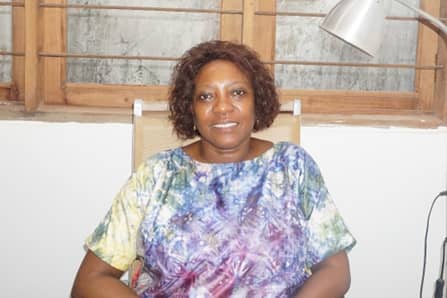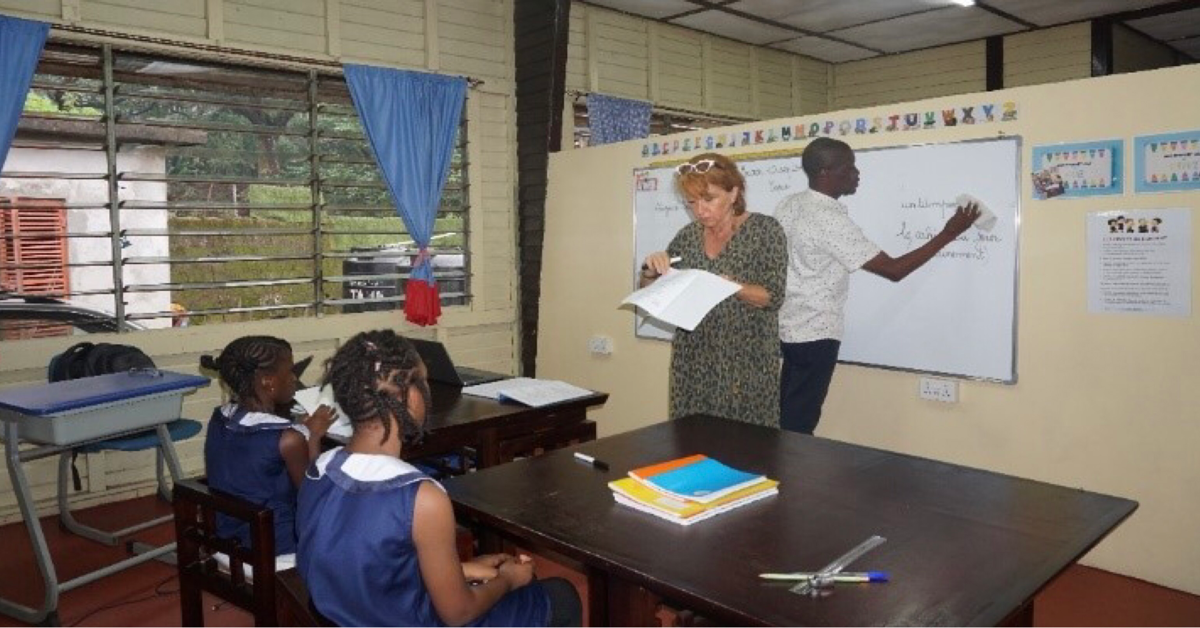The School of International French also called ‘Association Française de’ which is recognized as the first French school in the country calls for international collaboration to keep transferring bilingual learning in the country.
The school headed by Madam Janice Bras, as the school’s director is set to foster bilingualism and expand access to quality French education in a predominantly English- speaking environment. Yesterday, in an exclusive interview with Awoko at the school grounds on Regent Road, Hill Station, in Freetown, the director shared her motivation behind the reopening of the school, describing her vision to bring French education to a country where it has historically been underrepresented.
“My strong ties to both French and English cultures fueled my ambition to introduce French education in Sierra Leone. Having lived and worked in France for several years, I witnessed the advantages of bilingual education firsthand and recognized an opportunity to bring that to Sierra Leone, where French education has been limited,” she explained. She added that her experience running a successful holiday camp in the country for several years further inspired her to reopen the French school in Freetown.
The school’s curriculum mirrors the French education system, with subjects such as history, geography, and music taught entirely in French, while English and sports are taught in English. Having a strong belief that bilingualism opens doors to international opportunities, particularly in global organizations, the head stressed that mastering both French and English gives students a competitive edge in the job market.
“In Sierra Leone, we have a very limited number of professionals in high-level positions in international organizations, partly due to language barriers,” she mentioned. Her hope is that more Sierra Leoneans will recognize the long-term benefits of their children learning French at a young age. “Learning a second language from an early age not only increases job prospects but also contributes to cognitive development and a love for other cultures and traditions,” Director Bras explained.
At present, the school focuses on primary education, admitting children aged four to ten. Over the next few years, there are plans to expand the school with new classes being added each year. To support students with little to no French background, the school offers after-school reinforcement classes that focus on building vocabulary and grammar in a stress-free environment.
“We understand that French can be challenging for students who are just starting, so we offer additional lessons to help them build a foundation without overwhelming them. I’ve seen how quickly children adapt, having – gone through the same experience – with my own kids when we moved – to France,” she further explained. The school’s reopening marks a vital step in strengthening – the nations ties to the French language, and Madam Bras is keen
on establishing collaborations with French institutions to ensure its long-term success. Recounting a recent meeting with the French ambassador, who was supportive of the school’s reopening and discussed potential areas of collaboration, Madam Bras shared “Our goal is to work closely with all French institutions, not only in Sierra Leone but across West Africa.
We’re exploring ways to collaborate with French embassies, cultural centers, and educational bodies to enrich the curriculum and provide more opportunities for both students and teachers, ensuring that Sierra Leone becomes a hub for French learning.” This philosophy also extends to the school’s adult French language classes, which are scheduled to begin on October 1st.
These courses, which will span 12 weeks and cover beginner to intermediate levels, are designed to be fun, engaging, and accessible, with a focus on creating a supportive community where adults can practice and improve their French skills at their own pace.
“I understand how tough it can be to learn a new language, especially as an adult. That’s why we’ve designed the adult French education program to be engaging and supportive, with no pressure from exams or grades. We want adults to enjoy the process and feel comfortable using French in their everyday lives,” she said.
Notably, the French school has not gone unnoticed by the Sierra Leonean government. As per this, the director expressed her gratitude for the full support she has received from key figures such as the Vice President and the Minister of Basic Education of Sierra Leone, highlighting that the school is also part of a broader government-backed initiative that includes a memorandum of friendship between Sierra Leone and France.
The road ahead is not without challenges, especially when it comes to teaching French to children who are unfamiliar with the language. Madam Dominique Arnold-Baille, one of the teachers at the school shared insights into her teaching approach. She emphasized the importance of consistently speaking French in the classroom to help students become comfortable with the language.
“Initially, some pupils may be hesitant, but once they get used to hearing and speaking French, they begin to engage and respond,” Madam Dominique explained, spotlighting that the key is to immerse them in the language right from the start.”
As the School of International French evolves, Madam Bras remains optimistic about the future of French education in Sierra Leone. She hopes that more parents will recognize the value of bilingualism and enroll their children in the school. As she aptly put it, “French is not just a language; it’s a bridge to opportunities, and we’re here to help Sierra Leoneans cross that bridge.”













Please indicate exact location of the school
The school is located iat Hill Station. The old church hall at St Augustine’s Church.
Opposite the residence of the British High Commissioner.
The school is just before Président Lodge at Saint Augustin’s Old Church Hall.
Hello, please what is the address of the French School in Sierra Leone
Good news for all Sierra Leonean
I am also a proprietor of Paradise International Bilingual School in Bo Town…
I will love Associates with your French school